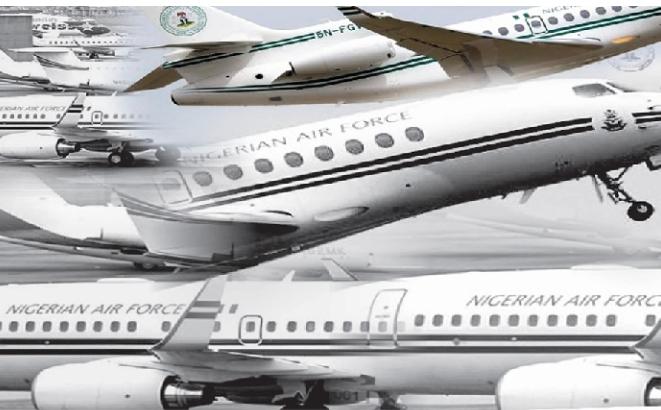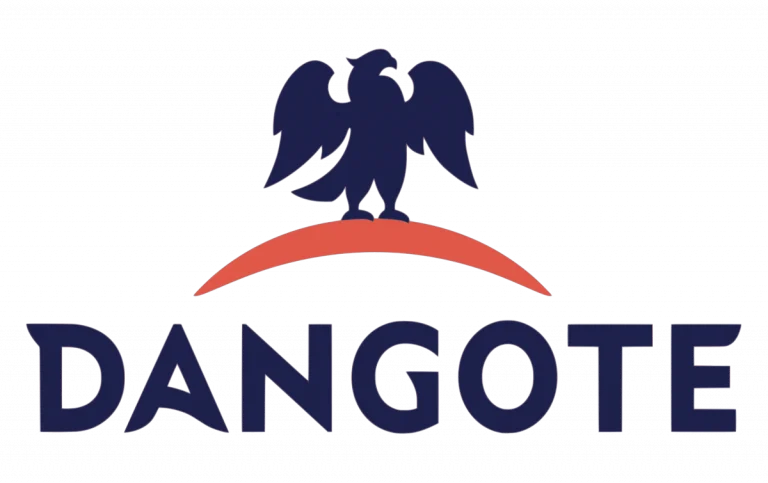Business
Private Jet Owners Sue Govt Over N30bn Tax

Owners of foreign-registered private jets, comprising top business moguls, leading commercial banks and other rich Nigerians, have dragged the Federal Government to court seeking to prevent the government from grounding their planes for allegedly refusing to pay import duty on the jets.
The Federal Government had last November approved the decision of the Nigeria Customs Service to ground 91 private jets belonging to some wealthy Nigerians over their alleged refusal to pay import duties running to over N30bn.
As such, following a presidential approval, the NCS in a letter directed the Nigerian Civil Aviation Authority, the Federal Airports Authority of Nigeria, and the Nigerian Airspace Management Agency to ground the affected private jets with immediate effect.
But owing to issues bothering on inter-agency rivalry and disagreements, the relevant government agencies could not ground the private jets.
However, in the past few months, the Customs has been making underground moves to perfect the process of grounding private jets whose owners failed to pay the import duty, multiple sources close to the development confirmed to The PUNCH on Tuesday.
17 jet owners
Also, further findings by our correspondents over the weekend revealed that at least 17 private jet owners had gone to court to stop the Federal Government from implementing the order.
According to the court papers seen by The PUNCH, the jet owners are seeking a judicial review as to whether it is lawful for them to pay the controversial import duty on their private jets or not.
READ ALSO: Adeleke Directs LG Heads To Replace Sacked Chairmen
The jet owners had sued the government using the foreign shell companies and trustees through which the foreign-registered jets were purchased.
Oftentimes, Nigerians and corporate bodies buy their foreign-registered private jets through foreign shell companies and trustees. Experts believe they often prefer to register the jets in foreign countries like the United States, United Kingdom, and Isle of Man, among others, to preserve the value of the aircraft in the event they want to sell it, as well as pay cheaper insurance premiums.
The latest findings showed that the jet owners had approached the Federal High Court Abuja seeking the court to determine, among other things, if they were liable to pay import duty.
The suit, with number FHC/ABJ/CS/1565/2021, is described as the matter of an application for judicial review by foreign registered aircraft against the Nigeria Customs Service and Nigeria Civil Aviation Authority.
According to the court document, the 17 applicants, which are mostly foreign companies of the Nigerian jet owners are: Aircraft Trust and Financing Corp Trustee, UAML Corp, Bank of Utah Trustee, Masterjet AVIACAO Executive SA, and Cloud Services Limited.
Others are MHS Aviation GmbH, Murano Trust Company Limited, Panther Jets, SAIB LLC, Empire Aviation Group, and Osa Aviation Limited.
The list also includes BUA Delaware Inc, Flying Bull Corporation Limited, Air Charter Inc, Sparfell Luftahrt GmbH, WAT Aviation Limited, and ATT Aviation Limited.
The NCAA and Customs were listed as respondents.
In a written address in support of the first respondents objector notice of preliminary objection, the court paper read in part, “The brief facts of this case are that the first respondents, having discovered that some operators of aircraft imported them under the guise of Temporary Importation Permit, were permanently imported into Nigeria and given TIP status to evade payment of lawful customs.”
A hearing date is yet to be fixed for the suit, according to preliminary findings by our correspondent.
However, there are strong indications that the NCS is making frantic efforts to get the private jet owners to pay the import duty.
Multiple sources confirmed on Tuesday that the NCS was not giving up on the decision to collect the revenue on behalf of the Federal Government, having obtained a presidential approval on the matter.
It was gathered that the agency might take a major decision on the matter very soon. It was further learnt that the Customs is in possession of government documents indicating that the private jet owners are by law required to pay import duty.
NCAA reacts
However, the spokesperson for NCAA, Mr Sam Adurogboye, said he was yet to be briefed but noted that, “’If a case is filed against an individual or organisation, what is to be done is to put up appearance and defend oneself.”
The NCS had in March last year embarked on a review of import duties paid on private jets brought into the country since 2006.
READ ALSO: FG Extends Kaduna-Abuja Train Resumption
Following the alleged discovery that several private jet owners, under the guise of Temporary Import Permit, had failed to pay the statutory import duty to the coffers of the government, the CG of Customs, Hameed Ali, set up a verification panel to review all TIPs and the relevant aircraft import documents of all private jets in the country.
At the end of the 60-day exercise, 57 private jets, which had licences for commercial charter operations, were cleared and issued with Aircraft Operators Certificate by the Customs.
However, 29 private jets, whose owners came for the verification, were found to be liable to pay the import duty.
The Customs also compiled a list of another 62 private jets whose owners failed to appear for the verification exercise but were found liable for import duty payment.
However, other private jet owners seeking to pay their import duty were given a 14-day ultimatum to clear the debts.
It is unclear the number of the jet owners that later paid the duty.
However, a list of 91 private jets whose owners had failed to present themselves for the import duty payment were presented to the NCAA, FAAN, and NAMA for the immediate grounding of their operations.
Some owners of the 91 jets reportedly wrote protest letters to the NCS, arguing why they could not pay the import duty because the jets were under lease payments.
The Customs, in its response to the letters, queried the rationale for bringing in the planes and allegedly fraudulently exporting them under questionable documentation processes in the past 10 years.
Unconfirmed officials had said the Ministry of Aviation directed the NCAA, FAAN and NAMA to suspend the grounding of the flight operations of the affected private jets.
Aircraft owners speak
Speaking on the development on Tuesday, the President, Association of Private Aircraft Owners Association, Mr Alex Nwuba, there is a need for the government to become transparent in the process of registering private jets.
He also said it might be difficult for the government to collect tax on private jets that are not fully imported into the country.
He said, “The idea is to ensure that people pay tax on imported aircraft. However, by keeping the registration of the jets offshore, how do you then pay tax on something that is foreign? The aircraft may have come and gone, but how do you pay tax on something that is not imported.
“The dilemma is if you register your private jet in Nigeria (5N), it is seen that it now have a lower value. The problem is that there is no transparency in our aircraft registration process. You cannot take the number of the aircraft, do a search and get the details. But if you do that for US-registered plane, you can get the details. But the summary is that you cannot collect duty on aircraft that is not imported.”
READ ALSO: Tension As Armed Robbers Invade Queen’s College Ibadan
Nwuba, a pilot and former managing director of Associated Airlines, said the cost of duty might be one of the factors discouraging some private jet owners.
He said, “Of course, you are made to put up a bond when you are bringing in an aircraft on a temporary basis. However, while we are looking for revenue, it is not everywhere we can get it. Another issue is that, if you buy a private jet for $80m, you may need to pay a duty of over $10m; that may be high to some people.”
Some of the 91 private jets meant to be grounded belong to the senior pastors of some popular Pentecostal churches in the country, some Tier-1 banks with one of the banks owning two upmarket jets, the CEOs of some indigenous oil companies, and the chairmen of some Tier-1 banks.
PUNCH
Business
NNPCL Announces Restoration Of Escravos-Lagos Pipeline

The Nigerian National Petroleum Company Limited (NNPCL) has announced the complete restoration of the Escravos-Lagos Pipeline System (ELPS) in Warri, Delta State, following the recent explosion on the asset.
The chief corporate communications officer (CCCO) of the nation’s oil company, Andy Odeh, in a statement, said that the pipeline is fully operational, reiterating the company’s resilience and commitment to energy security.
“NNPC Limited is pleased to announce the successful restoration of the Escravos-Lagos Pipeline System (ELPS) in Warri, Delta State.
READ ALSO:Fuel Price Cut: NNPCL GCEO Ojulari Reveals Biggest Beneficiaries
“Following the unexpected explosion on December 10, 2025, we immediately activated our emergency response, deployed coordinated containment measures, and worked tirelessly with multidisciplinary teams to ensure the damaged section was repaired, pressure-tested, and safely recommissioned.
“Today, the pipeline is fully operational, reaffirming our resilience and commitment to energy security. This achievement was made possible through the unwavering support of our host communities, the guidance of regulators, the vigilance of security agencies, and the dedication of our partners and staff.
“Together, we turned a challenging moment into a success story, restoring operations in record time while upholding the highest standards of safety and environmental stewardship.
“As we move forward, NNPC Limited remains steadfast in its pledge to protect our environment, safeguard our communities, and maintain the integrity and reliability of our assets. Thank you for your trust as we continue to power progress for Nigeria and beyond,” the statement read.
Business
Dangote Unveils 10-day Credit Facility For Petrol Station Owners

The Dangote Group has announced a 10-day credit facility backed by a bank guarantee for petrol station owners and dealers, alongside free direct delivery and other incentives, as part of a new supply arrangement.
The company disclosed this in a statement posted on its official X handle on Tuesday, inviting petrol station operators across the country to register to benefit from the offer.
According to the statement, participating dealers will enjoy “a 10-day credit facility backed by a bank guarantee,” with a minimum order requirement of 5,000 litres.
“Our free direct delivery service will commence soon,” the group said, adding that the offer is open to “all petrol station owners and dealers.”
READ ALSO:Dangote Sugar Announces South New CEO
The Dangote Group further called on operators to register their stations to access the supply arrangement.
“Register your petrol stations today to benefit from our competitive gantry price,” the statement read.
The company also disclosed that petrol supplied under the arrangement will be sold at a gantry price of ₦699 per litre.
For enquiries, the group provided the following contact numbers: 0802-347-0470, 0809-324-7070, 0809-324-7071 and 0203.
READ ALSO:Dangote Refinery Dispute: PENGASSAN Suspends Strike After FG Intervention
The announcement follows a recent petrol price adjustment by the Dangote Petroleum Refinery.
The PUNCH earlier reported that the refinery reduced its ex-depot petrol price from ₦828 to ₦699 per litre, representing a ₦129 cut or a 15.58 per cent reduction.
An official of the refinery, who spoke to PUNCH Online on condition of anonymity, confirmed the adjustment, saying, “The refinery has reduced petrol gantry price to ₦699 per litre.”
The new price reportedly took effect on December 11, 2025, marking the 20th petrol price adjustment announced by the refinery this year.
Business
JUST IN: Otedola Sells Shares In Geregu Power For N1trn

Billionaire businessman, Femi Otedola, has sold his majority stake in Geregu Power Plc for N1.088 trillion in a deal financed by a consortium of banks led by Zenith Bank Plc.
The Nigerian Exchange, NGX, made this announcement on Monday.
Otedola’s Amperion Power Distribution Company Ltd reportedly held nearly 80 percent of the power generating company.
READ ALSO:N200b Agric Credit Dispute: Appeal Court Slams NAIC, Upholds First Bank Victory
With this new development, Otedola, Chairman of First Holdco Ltd, parent company of First Bank of Nigeria Plc, will reportedly now concentrate on expanding his interest in the Nigerian banking sector, although he still retains some shares in Geregu.
Otedola is said to currently own 17.01 percent of First Bank — its single largest shareholder since the bank was established in 1894.

 Headline1 day ago
Headline1 day agoPROPHECY: Primate Ayodele Reveals Trump’s Plot Against Tinubu

 News24 hours ago
News24 hours agoWhat I Saw After A Lady Undressed Herself — Pastor Adeboye

 Metro1 day ago
Metro1 day agoJoint Task Force Kills 23 Bandits Fleeing Kano After Attacks

 Politics1 day ago
Politics1 day agoWhy Kano Governor Postponed Formal Defection To APC

 Metro23 hours ago
Metro23 hours agoArmed Robbers Shot PoS Operator To Death In Edo

 Politics1 day ago
Politics1 day ago2027: Rivers APC Pledges To Follow Wike’s Instructions

 News1 day ago
News1 day agoReps Release Four Tax Acts For Public Records

 Metro23 hours ago
Metro23 hours agoGunmen Demand N200m Ransom For Kidnapped Brothers In Edo

 Entertainment24 hours ago
Entertainment24 hours agoAnthony Joshua Returns To UK In Private Jet

 News1 day ago
News1 day agoNiMet Forecasts Three-day Dust Haze, Sunshine
































